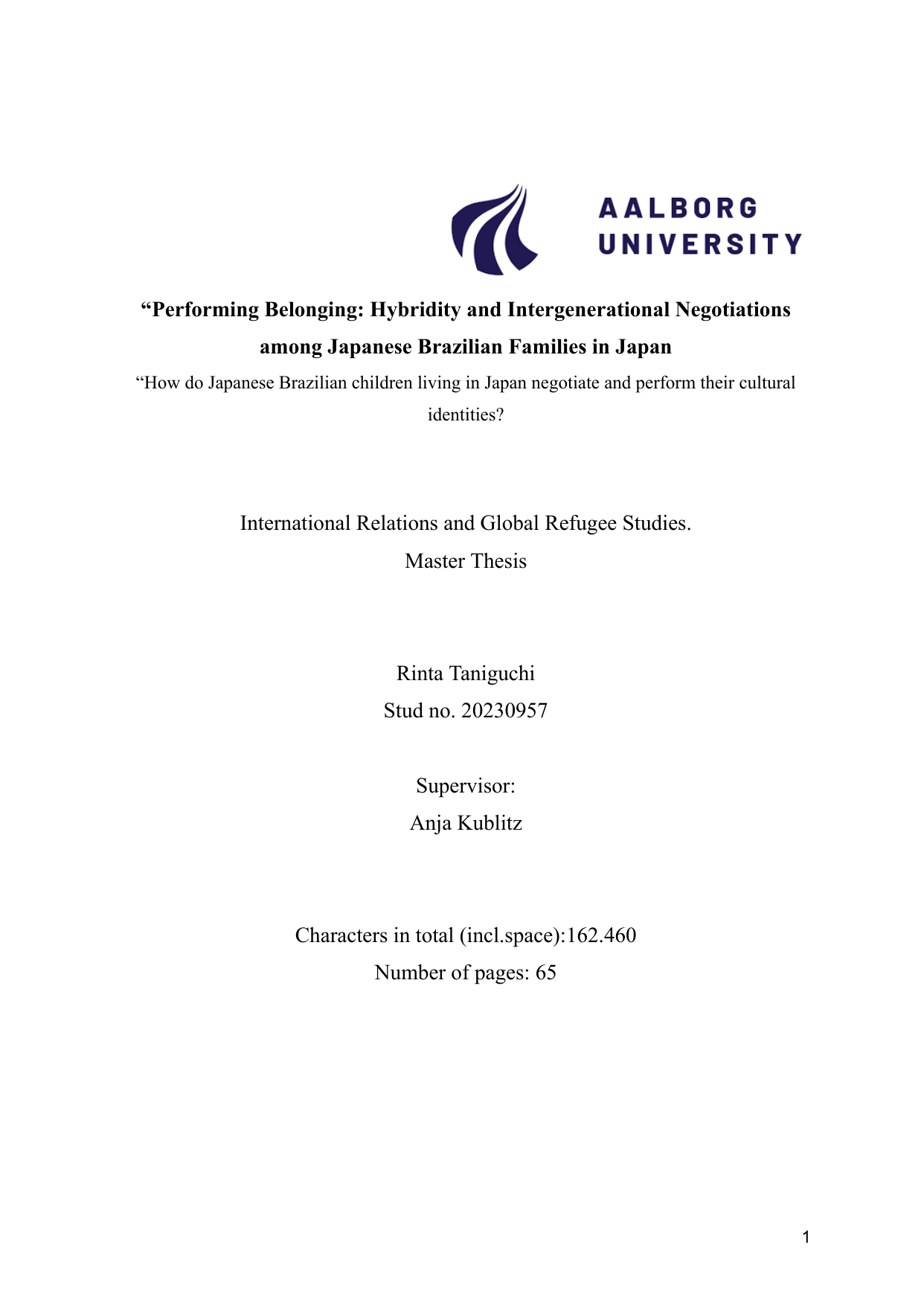
Performing Belonging: Hybridity and Intergenerational Negotiations among Japanese Brazilians Families in Japan: How do Japanese Brazilian children living in Japan negotiate and perform their cultural identities?
Translated title
Performing Belonging: Hybridity and Intergenerational Negotiations among Japanese Brazilian Families in Japan
Author
Term
4. semester
Education
Publication year
2025
Submitted on
2025-10-14
Pages
65
Abstract
This thesis explores how Japanese Brazilian children living in Japan negotiate and perform their cultural identities within a society shaped by strong ideals of homogeneity. Situated at the intersection of migration, ethnicity and intergenerational relations, the study examines both those born and raised in Japan and those who migrated from Brazil as children, illuminating how experiences of belonging are shaped across different generational and migratory contexts. While previous research on Japanese Brazilians has primarily focused on adult migrants or structural assimilation, less attention has been given to how the younger generation actively negotiates identity within schools, peer groups, and families. Using a grounded theory approach and based on semi-structured interviews with three Japanese Brazilian families, the analysis draws on theory of the third space, performativity and generational contract. Findings reveal that participants negotiate belonging through everyday acts such as silence, language mastery, and selective expression of Brazilianess that both conform to and challenge the dominant expectation of “Japaneseness”. Within families, intergenerational relationships emerge as moral spaces where obligation, care and identity are continually redefined. By foregrounding these relations and affective processes, the study reconceptualizes hybridity as an ongoing moral and performative practice of belonging, contributing new insights to migration and diaspora scholarships.
Documents
